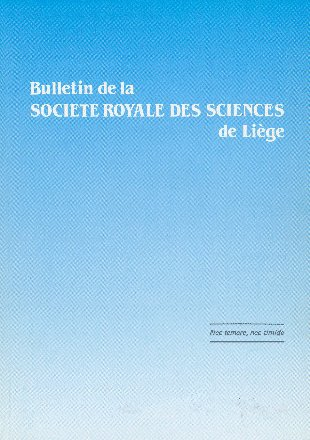- Portada
- Volume 80 - Année 2011
- Radiation pressure feedback in the formation of massive stars
Vista(s): 561 (8 ULiège)
Descargar(s): 423 (20 ULiège)
Radiation pressure feedback in the formation of massive stars

Documento adjunto(s)
Anexidades
Abstract
We investigate the radiation pressure feedback in the formation of massive stars in 1, 2, and 3D radiation hydrodynamics simulations of the collapse of massive pre-stellar cores. In contrast to previous research, we consider frequency dependent stellar radiation feedback, resolve the dust sublimation front in the vicinity of the forming star down to 1.27 AU, compute the evolution for several 105 yrs covering the whole accretion phase of the forming star, and perform a comprehensive survey of the parameter space. The most fundamental result is that the formation of a massive accretion disk in slowly rotating cores preserves a high anisotropy in the radiation field. The thermal radiation escapes through the optically thin atmosphere, effectively diminishing the radiation pressure feedback onto the accretion flow. Gravitational torques in the self-gravitating disk drive a sufficiently high accretion rate to overcome the residual radiation pressure. Simultaneously, the radiation pressure launches an outflow in the bipolar direction, which grows in angle with time and releases a substantial fraction of the initial core mass from the star-disk system. Summarized, for an initial core mass of 60, 120, 240, and 480 Mo these mechanisms allow the star to grow up to 28.2, 56.5, 92.6, and at least 137.2 Mo respectively.
Para citar este artículo
Acerca de: Rolf Kuiper
Argelander Institute for Astronomy, Bonn University, Auf dem Hügel 71, D-53121 Bonn, Germany, and Max Planck Institute for Astronomy, Königstuhl 17, D-69117 Heidelberg, Germany
Acerca de: Hubert Klahr
Max Planck Institute for Astronomy, Königstuhl 17, D-69117 Heidelberg, Germany
Acerca de: Henrik Beuther
Max Planck Institute for Astronomy, Königstuhl 17, D-69117 Heidelberg, Germany
Acerca de: Thomas Henning
Max Planck Institute for Astronomy, Königstuhl 17, D-69117 Heidelberg, Germany






